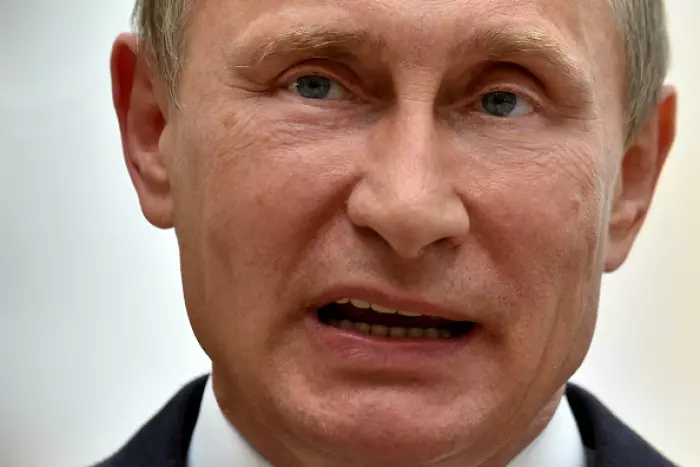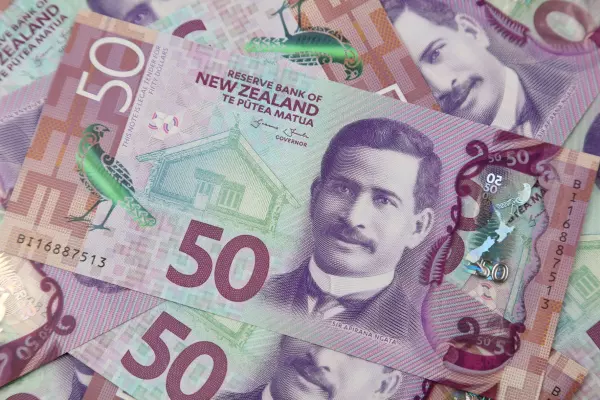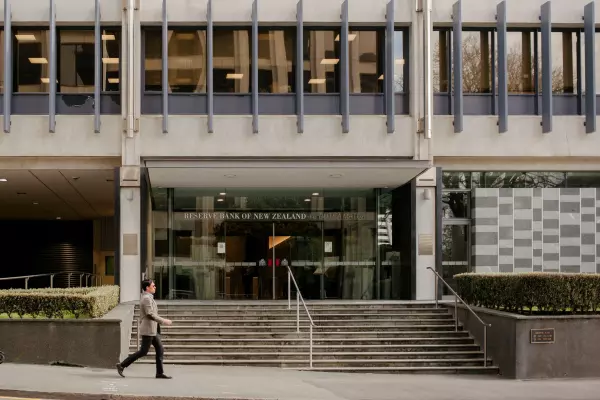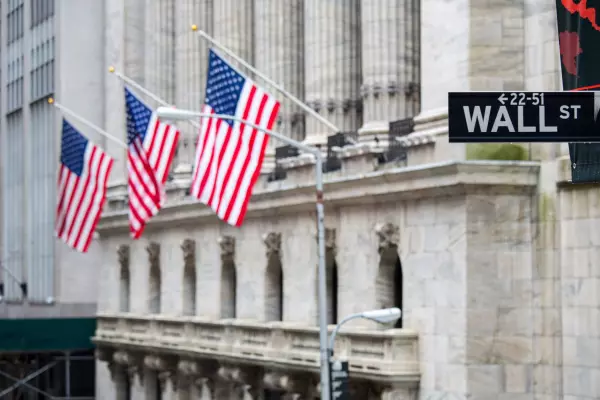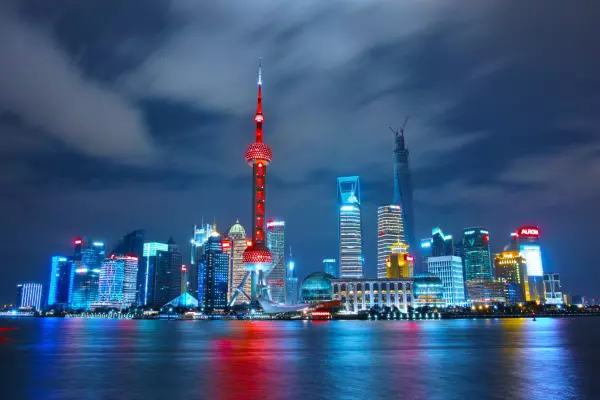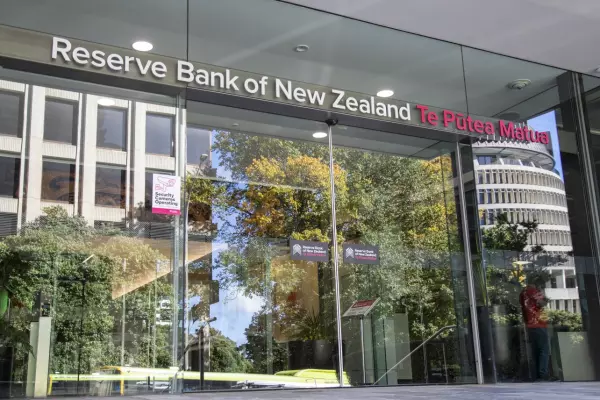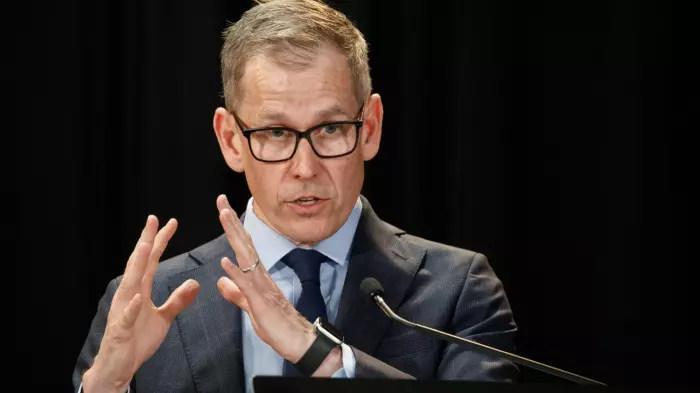Summary: Russia’s bombardment of Ukrainian city intensified overnight as the first day of peace talks failed to agree on a ceasefire. Meanwhile, Russia’s currency collapsed and its central bank had to more than double interest rates to 20% to stop its fall. The European arm of Russia’s biggest bank is set to collapse after a run on its funds. New Zealand and the UK signed a historic free trade agreement.
Signed, sealed, delivered – Trade and Export Minister Damien O’Connor and the UK Secretary of State for International Trade Anne-Marie Trevelyan formally signed NZ’s free trade with Britain overnight. O’Connor estimated it would boost GDP in the long run by $700m to $1b, with exporters saving $37m per year on tariff elimination from the first day of the deal, which is expected to kick in from the end of 2022.
Kharkiv bombarded – Russian forces stepped up indiscriminate artillery and rocket attacks on apartment blocks in the eastern Ukrainian city of Kharkiv overnight, blighting the prospects of success in peace talks going on between Ukrainian and Russian officials on the border with Belarus.
“The Russians have effectively surrounded Kharkiv and are bombing the hell out of it,” said Sasha Grinshpun, a resident quoted by the Financial Times. Ukraine’s Foreign Minister Dmytro Kuleba said this morning as the first day of talks ended without success that Ukraine was not ready to surrender.
Russian financial carnage – The rouble collapsed as much as 40% overnight after western nations froze the euro, US dollar and yen assets of the Russian Central Bank, stopping it from defending its currency against a race to the exits. That forced the central bank to more than double its main interest rate to 20% from 9.5% and again attempt to stop local runs on banks. The rouble was down 20% in late trade. There were also runs overnight on the European subsidiaries of Russian banks. The European Central Bank warned the European arm of Russia’s biggest bank, Sberbank, faced failure after savers demanded their deposits back all at once. Russia’s stock market was closed yesterday, although ETFs of Russian stocks listed elsewhere fell 25% overnight. Shares in Sberbank listed in London fell 75% and shares in Gazprom listed there fell 50%.
Bans widen – The EU banned Russian airlines from European airspace and Britain is considering banning Russian ships from entering British ports. The world’s biggest shipping line, Maersk, said it was considering stopping all deliveries to and from Russian ports. Elsewhere, sovereign wealth funds pledged to pull their money out of Russian assets. The biggest, the Norwegian fund, with US$1.3 trillion in assets in total, said it would sell its Russian assets worth US$2.3 billion at the end of 2021. FIFA looks set to suspend Russia from international football too. The NZ Super Fund is looking at its holdings, which include shares in Sberbank.
Another Fed bailout? – Russia’s central bank and other banks are thought to hold US$300b in the swaps market and the freezing of those assets could severely disrupt short term money markets, Credit Suisse Group AG strategist Zoltan Pozsar warned yesterday, adding the disruption may force the US Federal Reserve to have to intervene as it did in March 2020. (YahooFinance)
Default risk – Russia’s government bonds collapsed on global markets overnight on fears Russia would default on its sovereign debt for the first time since 1998, which went on to spark the Long Term Capital Management crisis. The Fed engineered a US$3.6b rescue of LTCM in 1998, which was then used as a precedent for its numerous bailouts of banks and others in the 2008/09 crisis. Russia’s biggest bond, a US$7b issue of bonds maturing in 2047, halved in value to 33c on the dollar overnight after Standard and Poor’s downgraded it to junk.
Insurance risk - The cost of credit default swaps on Russian bonds, which some use to insure against defaults, exploded to 37% overnight. This could cascade through into Europe’s banking system, where Italian banks and Russian banks each own US$25b worth of Russian Government bonds, while Austrian banks own US$17.5b. The 1998 default followed a disastrous Russian war in Chechnya. Meanwhile, a flight to quality saw the yield on the US 10 year Treasury bond fall 11 basis points to 1.87%.
Supply shocks – Toyota announced overnight it was closing all its 14 plants in Japan because of a cyber-attack, which senior Japanese officials said appeared to be retribution from Russian state-connected hackers aimed at countries that had imposed financial sanctions. Toyota said the plants of its Hino and Daihatsu units would also close. Each day the factories are closed costs Toyota 13,000 cars that are not produced. It said it hoped to open the factories again on Wednesday after two days of being closed.
Cars stalled - Elsewhere, VW said overnight it would stop electric car production at two plants in Germany for a few days because cable harnesses used in the cars were made in Ukraine. Germany’s car industry uses supplies from 49 sources in Russia and Ukraine, Autospias reported. Renault announced two of its factories in Russia would stop production because of parts supply problems. Renault owns 67% of Russia’s Lada, which has Eastern Europe’s second biggest car plant after Skoda in the Czech Republic. Russia is Renault’s second biggest market after France.
Markets fall – German stocks fell 2% overnight, while wider European indices fell around 1%. The S&P 500 was down 1% at 7am NZT, extending its losses for the calendar year to date to 9%. Brent crude futures bounced back 2.9% to US$101.1 per barrel. The NZ dollar bounced a bit overnight to 67.6 US cents on some recovery in risk sentiment.
Fresh on BusinessDesk this morning
Ian Llewellyn reports this morning Genesis Energy wants the Government to build up high-grade wood pellet manufacturing to replace the coal it burns at Huntly.
He also reports that Ampol is shelving plans to IPO its NZ retail fuel business, Gull, is being shelved after finding strong buyer interest in the discounter’s operations.


